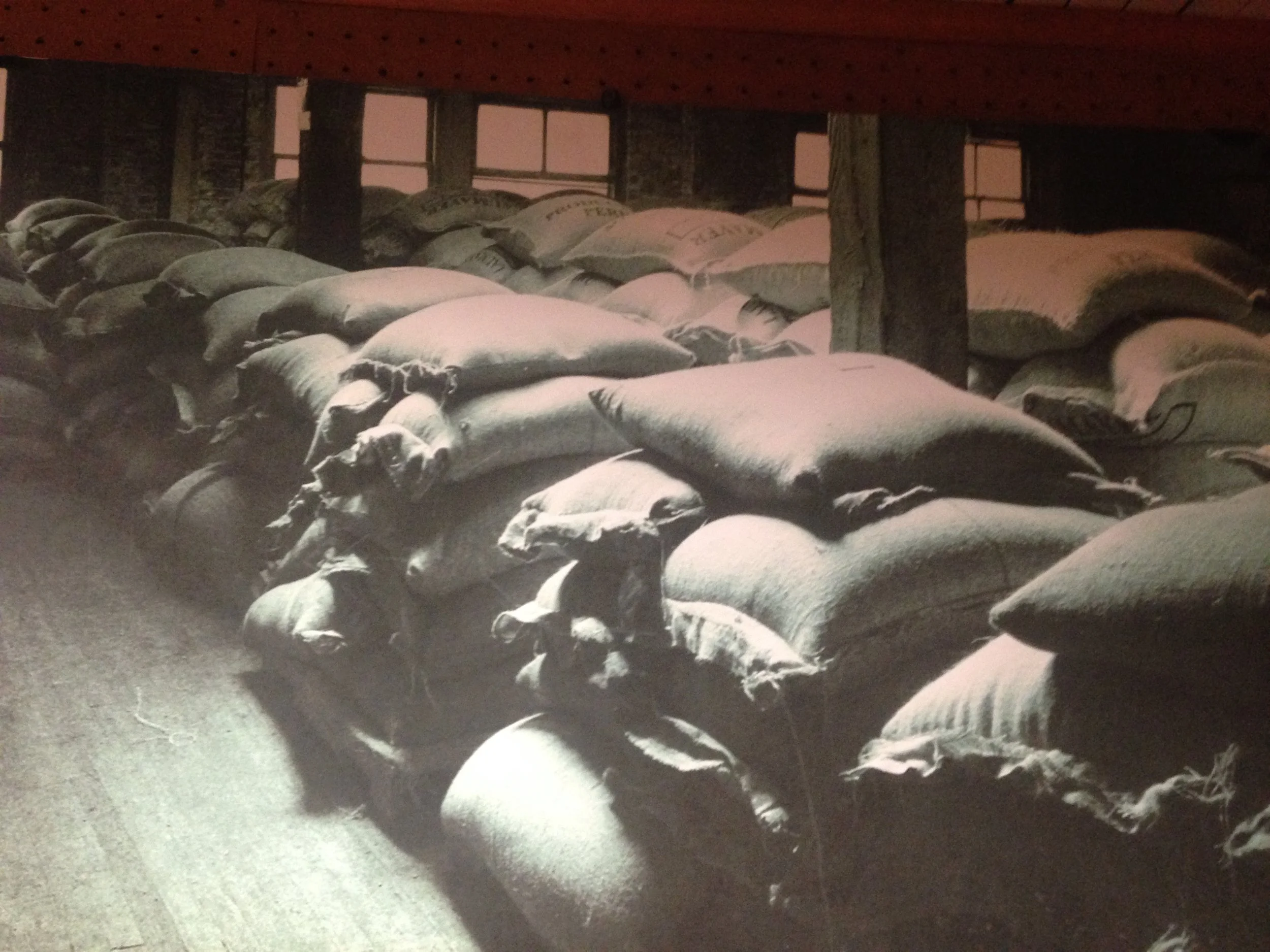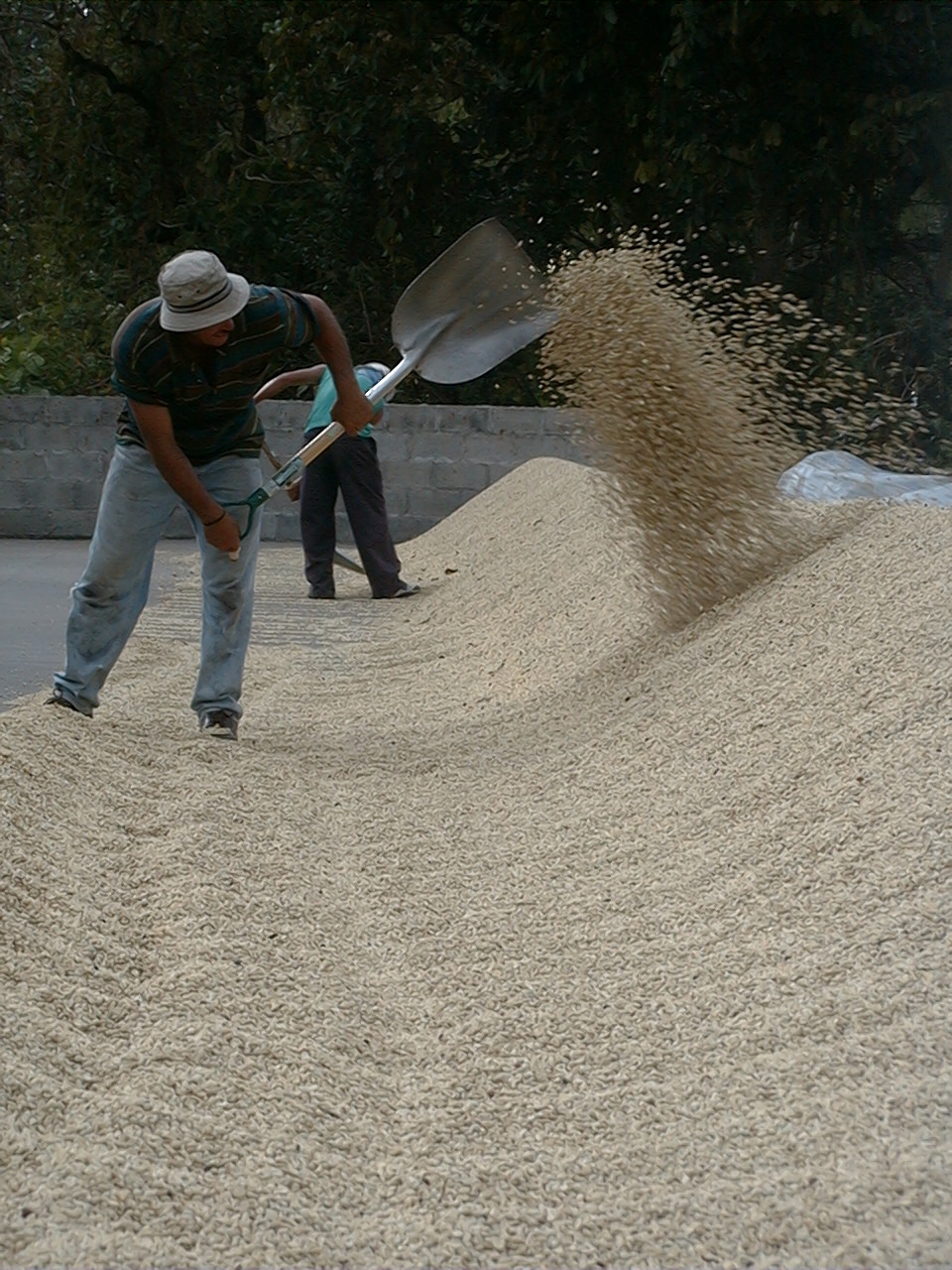Coffee is a fruit grown on a tree. Fruits are generally sweet. We believe the sweeter and more balanced coffees are, the more people like them, realize a higher appreciation for them, and will pay for the extra work it took to produce them.
Our green coffee buying is managed by Paul Thornton and his son Ben Thornton. Our quality is focused on purchasing coffees that are clean, sweet, and have no defects. We realize this value through frequently cupping our coffees from growers and suppliers we have spent over 20 years getting to know. Understanding our green quality needs and cupping them regularly helps us select top qualities and good value to offer our customers.
We purchase green coffees that are traceable back to the grower, co-op, or washing station through either a direct trade relationship between TFCR and our grower, or with some other direct traceability back to the growers through transparency and certifications.
We purchase and roast current crop coffees, and truck them to our roasting plant to preserve their fresh nature.
We always cup our coffees before buying them, after we have taken receipt of them, and again as we inventory them.
We sample roast our coffees for cupping evaluation using SCA (Specialty Coffee Association) standards, which is a part of our daily process of maintaining engagement with our product and realizing quality.
We maintain the same regimented approach to evaluating our green coffee quality while selecting, shipping, and sampling, when it arrives at our roasting plant.
We record specific details of the coffee we purchase that support traceability records, prices paid, and producer records. It is very clear to us who grew and produced our coffee, what varieties they are, and what their sustainable practices are. We will share these results as we continue to build relationships.
We are in regular contact with our supply chain who supports growing, producing, importing, and transporting our green coffee.
Paul has a long standing successful record of establishing sustainable relationships with growers, purchasing their coffee at prices that reflect the quality of their product, and allowing the grower the income to give them an opportunity to maintain quality and strive to improve their lives in the future. Paul has traveled to different coffee origins over a hundred times, and uses his experience to continue developing direct relationships while fostering Direct Trade supply chains.
Direct Trade is about working directly with growers, giving them real options that are outside of commoditization, and rewarding them for quality that exceeds the region they grow in. All of Thornton Family Coffee Roasters coffees are purchased using a Direct Trade concept where payment to growers reflects their quality and allows repeatability of that quality, or fully traceable coffee through certification or validated supply chains.
Thornton Family Coffee Roasters purchasing process is complimented by Rachel, Paul’s daughter. Rachel and her family spent 5 years working on an organic coffee farm in Kailua-Kona, Hawaii, managing picking, producing, roasting, packaging, and distributing coffee. Her experience supports Thornton Family Coffee Roasters through her understanding of coffee’s raw production, and how this production is tied to quality and value through roasting techniques and cupping. She is skilled a coffee professional who has the experience to support our purchasing principles.
We buy our green coffee using importers, as pretty much all coffee roasters do. In many cases, our coffees are purchased through a direct agreement with growers. Our importers not only help us find some of the green coffee we purchase and get them delivered to our plant, but we also contract them to export and import coffee that we buy directly from farmers. Our producers and importers help us select coffees with a priority toward sustainability.
We engage with importers, growers, and the supply chain all year. We do this to give us insight into crop supplies, challenges growers have through the year, coffee market insights, and a heads-up surrounding new crops. We focus on new crop coffees and do not use a coffee past it's year’s harvest.
As a coffee comes into harvest, we engage with our supply partners and obtain small samples of their green coffee, representing the new year’s crops. We sample roast these using an industrial 3 barrel Probat sample roaster. This roaster is an antique, but is perhaps one of the most well-built roasters ever made - using old metals from the early 1900’s, it offers a cleanliness in the samples we cup.
We cup all of our coffees, and allow a degassing period before cupping. Once we decide what to buy, we purchase inventory and work to get it moved to our roasting plant. Upon arrival at our plant, we again pull samples representing the load we bought, sample roast, and cup. This gives us a chance to validate that we received what we paid for and assure it has the quality and value we expected.
Even if we aren’t making buying decisions, we cup regularly. We do this to maintain calibration with the industry and between ourselves. We also cup our coffees numerous times for as long as we inventory them, to better realize how coffee changes while in its raw form, giving us a chance to adjust our roast profiles.
We hope you can come and join us! It’s the best way to learn about different coffee tastes and the many variations of quality and flavors.




